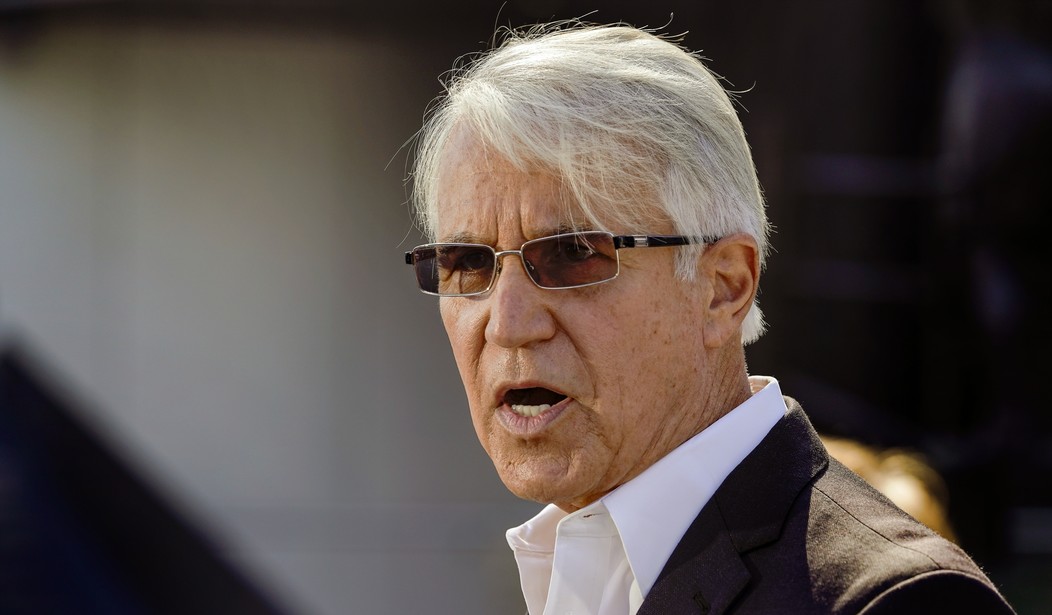Since his swearing-in as Los Angeles County District Attorney, former San Francisco DA and Soros-funded candidate George Gascon has been under fire from both voters and Deputy DAs for his continued marching back of public safety measures. Many of the shocking “reforms” – such as not allowing prosecutors to ever oppose parole even if a convict was deemed high risk, not charging juveniles with attempted murder or rape, were never mentioned by Gascon during the campaign in which he was victorious over Democrat incumbent Jackie Lacey, a black woman, in his quest to bring his failed policies from San Francisco to Los Angeles.
Other “reforms” enacted as Special Directives Gascon issued on Day One, were viewed as unconstitutional by many of the DDAs employed in Gascon’s office. This was brought to Gascon’s attention, and some DDAs argued that they were at risk of being disbarred if they followed those directives. Gascon asserted that as the elected DA his directives came first. As a result of Gascon’s flat-out refusal to allow DDAs to do their jobs, the Los Angeles Association of Deputy District Attorneys filed a lawsuit to prevent the enforcement of Gascon’s Special Directives.
The intrepid reporter for the local Fox affiliate, Bill Melugin, who has been a vital part of exposing Gascon’s terrible policy alterations, shared the news of the injunction this morning:
Judge Chalfant: "The District Attorney's disregard of the Three Strikes law "plead and prove" requirement is unlawful, as is requiring deputy DA's to seek dismissal of pending sentencing enhancements without a lawful basis."
This is a major win for @LACountyADDA vs Gascon @FOXLA— Bill Melugin (@BillFOXLA) February 8, 2021
One Special Directive included in LAADDA’s suit prohibited DDAs from filing special circumstances or enhancements – ever – even for perpetrators of the most heinous of crimes. Instead, they were ordered to read a statement scripted by Gascon to the Court which stipulated that the punishments dictated by law were sufficient to ensure public safety without requiring enhancements.

The injunction, which can be found here, specifically states that although Gascon believes he has the power to decide whether or not to enforce certain laws or a portion of the code, the court believes he does not, especially in the case of laws that require prosecution.
“The Special Directives require prosecutors to violate California law, their oaths of office, and their ethical and professional obligations. The Special Directives violate the Three Strikes law by prohibiting prosecutors from pleading and proving prior convictions in new cases. Prosecutors have a ministerial duty to allege all prior convictions under the Three Strikes law. Respondents refuse to perform this duty. The Special Directives also require deputy district attorneys to wrongly argue that the mandatory obligation to plead and prove strikes is unconstitutional as violative of the separation of powers.
The Special Directives violate Respondents’ duty to prosecute violations of general laws under Government (“Govt.”) Code section 26500, which is mandatory, not discretionary. Although a district attorney has discretion to determine what charges to file (if any) in a particular case, the district attorney cannot wholly decline to exercise that discretion by indiscriminately prohibiting the prosecution of all violations of certain offenses. Respondents have a ministerial duty to enforce the law and to exercise their prosecutorial discretion in particular cases.
The Special Directives demand that County prosecutors violate the law by requiring them to bring a motion—and to refuse to oppose a motion at resentencing—to strike prior convictions and special circumstances resulting in a LWOP sentence in all pending cases where they have already been alleged. The striking of these prior convictions and special circumstances is prohibited by law in many cases.
The Special Directives seek to circumvent the court’s role by requiring County prosecutors to file an amended charging document abandoning the allegations in the event the motion to strike is denied. This tactic runs afoul of Penal Code section 1386, which provides that once a prosecution has been initiated, neither the Attorney General nor the district attorney can discontinue or abandon a prosecution for a public offense without permission of the court. Respondents have a ministerial duty to proceed with prosecution once it has been initiated unless the court permits it to be dismissed. Respondents have failed to perform this duty.
This really comes down to the fact that Gascon doesn’t like the law or the way that it is presently constituted. Essentially, due to the separation of powers, a DA is an executive office, elected to execute and prosecute the laws on the books. Gascon doesn’t like the law and wants to change it, but instead of running for the legislature – which would give him the power to change the law with 119 of his colleagues in the legislature – he has decided to just pick and choose which laws he wants to prosecute and which portions of the law his office will enforce. He knows that if he were to run for the Assembly or Senate advocating for the policies he’s currently attempting to enact he’d get destroyed. Instead, he runs for some law-and-order office, using this veil of “reform” as a means of generating support, to simply make decisions on which laws to enforce.
The injunction states specifically that Gascon’s orders are contrary to his responsibilities and deny the Deputy DAs the ability to perform their duties and fulfill their oath of office. I don’t know why this is a surprise to Gascon considering that the responsibilities of the separate branches hold.
Gascon will likely appeal this decision and ask for a stay on the injunction in the meanwhile, but with the way that the decision was written, it is unlikely that this will be overturned or a stay granted.
(NOTE: This article was updated at 4:17 p.m. PST.)













Join the conversation as a VIP Member